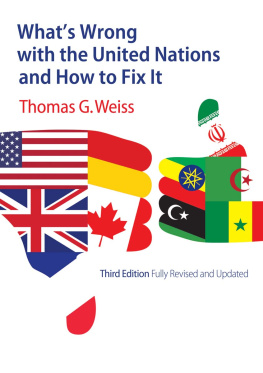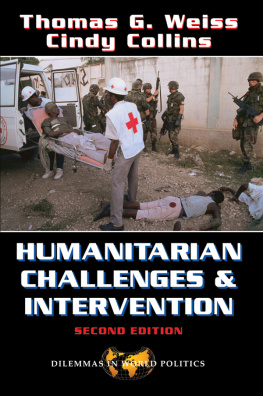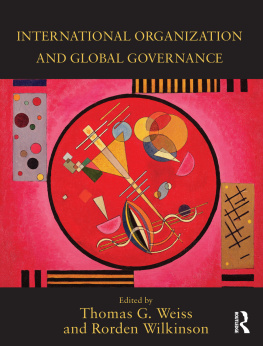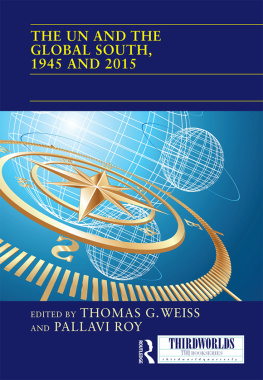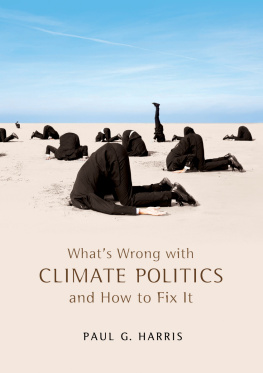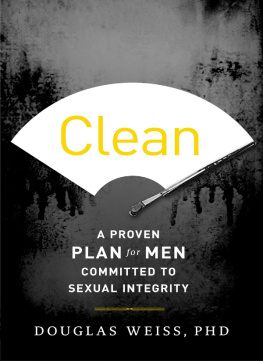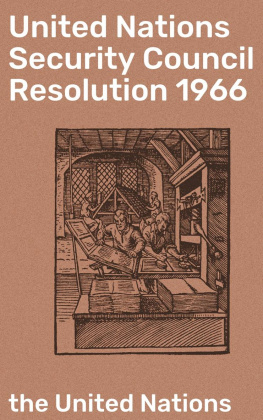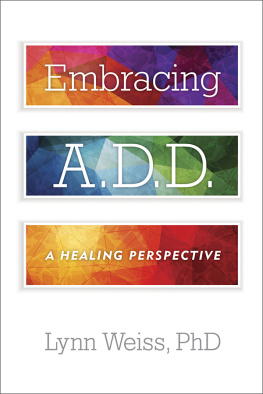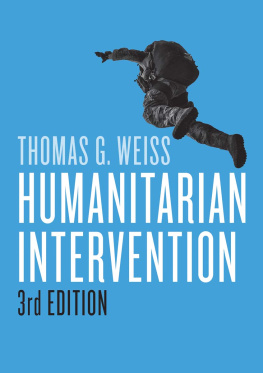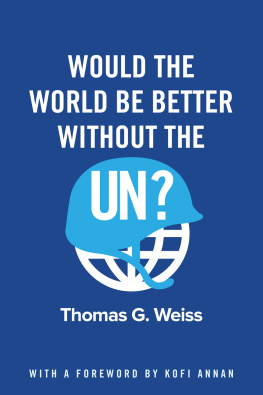Thomas G. Weiss - Whats Wrong with the United Nations and How to Fix It
Here you can read online Thomas G. Weiss - Whats Wrong with the United Nations and How to Fix It full text of the book (entire story) in english for free. Download pdf and epub, get meaning, cover and reviews about this ebook. year: 2016, publisher: Polity, genre: Politics. Description of the work, (preface) as well as reviews are available. Best literature library LitArk.com created for fans of good reading and offers a wide selection of genres:
Romance novel
Science fiction
Adventure
Detective
Science
History
Home and family
Prose
Art
Politics
Computer
Non-fiction
Religion
Business
Children
Humor
Choose a favorite category and find really read worthwhile books. Enjoy immersion in the world of imagination, feel the emotions of the characters or learn something new for yourself, make an fascinating discovery.
- Book:Whats Wrong with the United Nations and How to Fix It
- Author:
- Publisher:Polity
- Genre:
- Year:2016
- Rating:4 / 5
- Favourites:Add to favourites
- Your mark:
- 80
- 1
- 2
- 3
- 4
- 5
Whats Wrong with the United Nations and How to Fix It: summary, description and annotation
We offer to read an annotation, description, summary or preface (depends on what the author of the book "Whats Wrong with the United Nations and How to Fix It" wrote himself). If you haven't found the necessary information about the book — write in the comments, we will try to find it.
Whats Wrong with the United Nations and How to Fix It — read online for free the complete book (whole text) full work
Below is the text of the book, divided by pages. System saving the place of the last page read, allows you to conveniently read the book "Whats Wrong with the United Nations and How to Fix It" online for free, without having to search again every time where you left off. Put a bookmark, and you can go to the page where you finished reading at any time.
Font size:
Interval:
Bookmark:
We are grateful to the following for permission to reproduce copyright material:
Cambridge University Press for Features of the Human Rights Council Compared with Those of the Commission on Human Rights by Nico Schrijver, The UN Human Rights Council: Society of the Committed or Just Old Wine in New Bottles? published in Leiden Journal of International Law 20 (2007): 80923.

Whats Wrong Series
Paul Harris, Whats Wrong with Climate Politics and How to Fix It
Simon Hix, Whats Wrong with the European Union and How to Fix It
Bill Jordan, Whats Wrong with Social Policy and How to Fix It
Rorden Wilkinson, Whats Wrong with the WTO and How to Fix It
THOMAS G. WEISS
Third Edition
polity
Copyright Thomas G. Weiss 2016
The right of Thomas G. Weiss to be identified as Author of this Work has been asserted in accordance with the UK Copyright, Designs and Patents Act 1988.
First edition published in 2008 by Polity Press
This edition published in 2016 by Polity Press
Polity Press
65 Bridge Street
Cambridge CB2 1UR, UK
Polity Press
350 Main Street
Malden, MA 02148, USA
All rights reserved. Except for the quotation of short passages for the purpose of criticism and review, no part of this publication may be reproduced, stored in a retrieval system, or transmitted, in any form or by any means, electronic, mechanical, photocopying, recording or otherwise, without the prior permission of the publisher.
ISBN: 978-1-5095-0747-4
A catalogue record for this book is available from the British Library.
Library of Congress Cataloging-in-Publication Data
Names: Weiss, Thomas G. (Thomas George), 1946- author.
Title: Whats wrong with the United Nations and how to fix it / Thomas G. Weiss.
Description: Third edition. | Cambridge ; Malden, MA : Polity Press, [2016] | Includes bibliographical references and index.
Identifiers: LCCN 2016001168| ISBN 9781509507436 (hardback : alk. paper) | ISBN 9781509507443 (pbk. : alk. paper)
Subjects: LCSH: United Nations.
Classification: LCC JZ4984.5 .W456 2016 | DDC 341.23--dc23 LC record available at https://lccn.loc.gov/2016001168
The publisher has used its best endeavours to ensure that the URLs for external websites referred to in this book are correct and active at the time of going to press. However, the publisher has no responsibility for the websites and can make no guarantee that a site will remain live or that the content is or will remain appropriate.
Every effort has been made to trace all copyright holders, but if any have been inadvertently overlooked the publisher will be pleased to include any necessary credits in any subsequent reprint or edition.
For further information on Polity, visit our website: politybooks.com
God, give us grace to accept with serenity the things that cannot be changed, courage to change the things that should be changed, and the wisdom to distinguish the one from the other.
Reinhold Niebuhr, Serenity Prayer, 1943
Thomas G. Weiss is Presidential Professor of Political Science at The Graduate Center of The City University of New York (CUNY), director emeritus of the Ralph Bunche Institute for International Studies, and 2016 Carnegie Fellow. Past President of the International Studies Association and recipient of its Distinguished IO Scholar Award 2016, he was also editor of Global Governance and research director of the International Commission on Intervention and State Sovereignty as well as Chair of the Academic Council on the UN System. He has written extensively about international organization, peace and security, humanitarian action, and sustainable development. His recently authored books include Humanitarian Intervention: Ideas in Action, 3rd edn (2016); (with David P. Forsythe, Roger A. Coate, and Kelly-Kate Pease) The United Nations and Changing World Politics, 8th edn (2016); Governing the World? Addressing Problems without Passports (2014); Global Governance: Why? What? Whither? (2013); Humanitarian Business (2013); (with Ramesh Thakur) Global Governance and the UN: An Unfinished Journey; (with Michael Barnett) Humanitarianism Contested: Where Angels Fear to Tread (2011); Thinking About Global Governance: Why People and Ideas Matter (2011); and (with Richard Jolly and Louis Emmerij) UN Ideas That Changed the World (2009). His recently edited volumes include: (with Dan Plesch) Wartime Origins and the Future United Nations (2015); (with Adriana Erthal Abdenur) Emerging Powers and the UN: What Kind of Development Partnership? (2015); (with Rorden Wilkinson) International Organization and Global Governance (2014); (with Stephen Browne) Post-2015 UN Development: Making Change Happen? (2014); (with Mnica Serrano) The International Politics of Human Rights: Rallying to the R2P Cause? (2014); and (with Rama Mani) The Responsibility to Protect: Cultural Perspectives in the Global South (2011).
Almost from the outset in 1945, the reform of the world organization has been a constant item on the UNs agenda. It has been the subject of hundreds of books, speeches, UN documents, and articles in the media. Governments have spent thousands of hours discussing the subject. Except for the reorganization of the Security Council, however, on which there is no agreement, reform has usually been taken to mean only the reform of the secretariats bureaucracy and authority. Governments evidently prefer it that way. But the UN is a political organization, and the need to develop and strengthen its political basis and nature is an essential part of any serious effort to make it work better.
Thomas G. Weiss has had the couragethe temerity perhapsonce again to put the political aspect of UN reform front and center in this latest edition of Whats Wrong with the United Nations and How to Fix It. His main argument is direct. National sovereignty, as defined in the Treaty of Westphalia in 1648, is the fundamental organizing principle of the United Nations. Since World War II, revolutionary change and the new demands of a global world have steadily reduced the relevance and importance of national sovereignty in most areas of human activity. At the United Nations, however, sovereignty is as strong as, or stronger than, ever. For proof of this, one need look no further than the obstacles that have confronted the UN in addressing the Syria calamity since 2011 and that have hamstrung it elsewhere.
The history of the UN has been, among other things, a continuous and often unsuccessful effort to find a working balance between sovereignty, on the one hand, and international responsibility and effective action, on the other. This effort has become especially important because the present generation of global problems can truly be dealt with only by international management of an entirely new order. If global warming, terrorism, and nuclear proliferation are serious threatsas they surely arewe simply cannot limp along indefinitely with the current, severely limited generation of international organizations.
To devise and to rally support for serious reform, it is important that the current workings of the United Nations should be far better understood than is now the case. Thomas G. Weiss provides a clear and highly readable account of the main activities of the organization, as well as a brilliant analysis of its contemporary operations and problems. These include the UNs vital relationship with the United States, with its global reach and power. He examines the relationship between the secretariat and intergovernmental bodies, both in the UN itself and in the UN system of specialized agencies and special programs. He also considers the increasingly important part played by nongovernmental organizations on the world stage.
Font size:
Interval:
Bookmark:
Similar books «Whats Wrong with the United Nations and How to Fix It»
Look at similar books to Whats Wrong with the United Nations and How to Fix It. We have selected literature similar in name and meaning in the hope of providing readers with more options to find new, interesting, not yet read works.
Discussion, reviews of the book Whats Wrong with the United Nations and How to Fix It and just readers' own opinions. Leave your comments, write what you think about the work, its meaning or the main characters. Specify what exactly you liked and what you didn't like, and why you think so.

